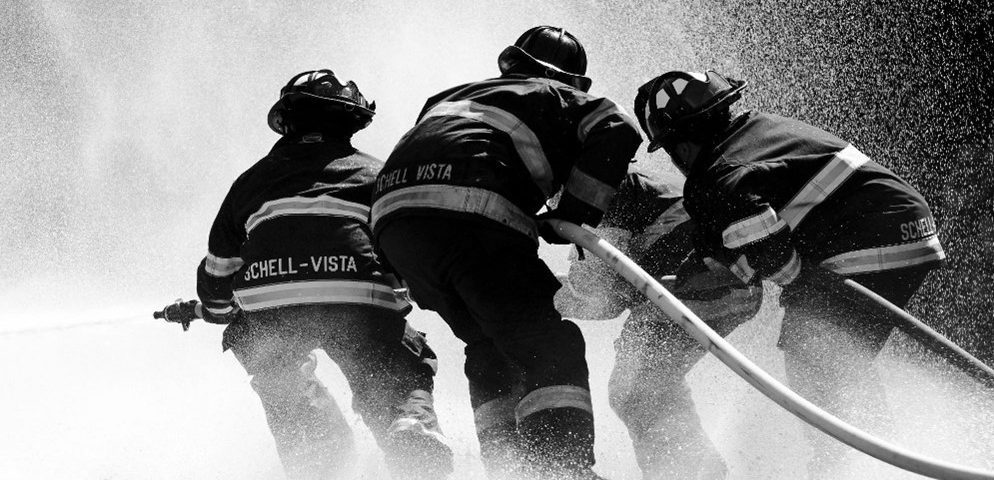- Hyderally & Associates P.C | Employment Lawyers NJ, NY
- (973) 509-8500
- tyh@employmentlit.com
Weathering the Storm: Navigating Employment Laws During Natural Disasters

Navigating the Toxic Workplace: Understanding and Addressing a Hostile Work Environment in New Jersey.
January 28, 2025
Don’t Believe Social Media… You Still Have Rights in Your Workplace!
February 7, 2025Weathering the Storm: Navigating Employment Laws During Natural Disasters
By Ty Hyderally, Esq. and Faatimah Jafiq
January 16, 2025
My basement was flooded during the hurricane, my roof caved in because of the snowstorm, and the drought eventually led to wildfires in my backyard. When faced with natural disasters, work can be the last thing on our minds.
NONEXEMPT VS EXEMPT EMPLOYEES
The general rule of thumb set by the Fair Labor Standards Act (FLSA) for nonexempt employees is no work, no pay. If a business is open but an employee does not show up to work due to transportation struggles caused by the inclement weather, the U.S. Department of Labor considers that to be an employee absence for personal reasons. In this circumstance, the employer may demand that the employee use vacation days, place the employee on leave without pay, or demand that the employee make up the lost time once they return to work.[1]
If the employer is unable to open their business or provide work due to a natural disaster, the employer is not required to pay nonexempt employees during this time. However, if the employee is an exempt employee, then the employer is obligated to continue paying the employee’s salary throughout a business closure for less than a full workweek. During this time an employer may require that exempt employees use their paid leave.
FMLA, ADA, OSHA
FMLA: Employees who need to take time off to heal from a serious health condition caused by the natural disaster (or to care for a loved one with a serious health condition) may be able to take leave under the Family and Medical Leave Act if they are eligible.[2]
ADA: According to the Americans with Disabilities Act, employees who have been injured (physically or mentally) by the disaster may be entitled to reasonable accommodations by their employer as long as it does not interfere with the employee’s essential job duties and does not place undue hardship on the routine operations of the business.
OSHA: Under the Occupational Safety and Health Act, employers are obligated to protect employees from dangerous work.[3] Employees can refuse to work in “good faith” if they believe an imminent danger exists or there is not enough time to correct or eliminate the danger. [4]
WARN ACT and SEVERANCE PAY
New Jersey amended the Worker Adjustment and Retraining Notification Act in 2023, allowing employers with 100+ employees to “terminate employees without providing the 90 days’ notice only if the mass layoff or plant closing is the result of a natural disaster (flood, fire, or other emergency).”[5] Under the WARN Act employers must pay severance pay equivalent to one week of pay for each full year of employment to each employee affected by mass layoffs or transfer/termination of operations. If an employer fails to comply with the 90 day notice requirement, the affected employees are entitled to an additional 4 weeks’ severance pay.
RETALIATION and TERMINATION
It is not uncommon for an employer to threaten demotion, suspension, or termination when an employee cannot or will not comply with their demands. If you are faced with retaliation of any kind for refusing to perform dangerous work, you should contact OSHA within 30 days of the incident. However, if the employee does not show up for work without good cause, they can be terminated.[6] In New Jersey, employers are not obligated to close their business or offer employees flexible work options due to inclement weather or a declared state of emergency. So be wary of a reduced paycheck if you do not go to work….
En nuestra firma hablamos español. This blog is for informational purposes only. It does not constitute legal advice and may not reasonably be relied upon as such. If you face a legal issue, you should consult a qualified attorney for independent legal advice regarding your particular set of facts. This blog may constitute attorney advertising. This blog is not intended to communicate with anyone in a state or other jurisdiction where such a blog may fail to comply with all laws and ethical rules of that state or jurisdiction.
[1] This is only permissible for exempt employees. Nonexempt employees are entitled to overtime pay for working over 40 hours in a week.
[2] Read more about FMLA eligibility here: https://www.employmentlit.com/2024/10/10/fmla-101/
[3] 29 C.F.R. § 1977.12 (2025). Read more about Workers’ Right to Refuse Dangerous Work here: https://www.osha.gov/workers/right-to-refuse
[4] Both OSHA and the National Labor Relations Act (NLRA) provide standards that allow employees to refuse to work under conditions they believe dangerous. Read more about the NLRA here: https://worksafe.org/file_download/inline/f722f39a-e4b0-43a9-910a-17df9a9da58b
[5] Read more about the WARN ACT here: https://www.employmentlit.com/2023/12/07/new-jersey-warn-act-expands-protections-terminated-employees/
[6] As was the case in Florida.


